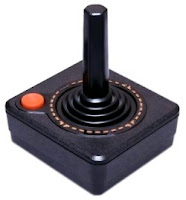Hey, check it out - a story that combines two of my most discussed topics here: e-books and porn. Slate has discovered that some of the hottest selling (or downloaded) e-books on Amazon are erotica, and even downright pornographic, including titles such as Office Slave and Compromising Positions. As the story puts it:
There's no point in dancing around it: Amazon is distributing men's erotic fiction, and its bargain-basement Kindle pricing — in many cases, this material, too, is given away for free — means that some of it shows up on "best-seller" lists...
...Every time a major new content platform — print, film, cable, VHS, DVD, the Internet, mobile phones — has experienced massive growth, it has either been driven by a porn boom or at least brought the porn industry along for the ride. (The biggest exception is probably radio.)
Of course, this stuff isn't the least bit surprising - not only is much of the technological side of it covered in Sex, Bombs and Burgers, but my book also actually rubs up against some of what it motivating these e-book sales. I've mentioned before how one reason why people don't buy SB&B is because it has the word "porn" in its subtitle. Some people would, understandably, rather not be seen reading such a book in public places for fear of what it allegedly says about them ("Eww! That loser is reading a book about porn. He must be a pervert!").
The e-book version therefore, read on an e-reader, obviates that problem for both "clean" books like mine that just happen to mention something "nasty" on their covers and for the "nasty" books themselves. An e-reader is the digital equivalent of the nondescript brown paper cover that some stores used to sell porn magazines in, and e-books allow you to read whatever you want in public without fear of scorn.
Combine all that with the self-publishing ability that Amazon and other e-bookstores provide and there's very obviously going to be a huge boom in pornographic e-books, as Slate is finding.
The trend is really a textbook technology case. It's still relatively early days for both e-books and Amazon's foray into them, and the company is only too happy to let porn provide the content that mainstream publishers are still somewhat reluctant to part with. After all, if Amazon wants to sell Kindles, it has to give people something to read on them. But, as the Slate article suggests, it's likely only a matter of time before Amazon comes under pressure from the usual suspects, and is perhaps forced to clamp down.
What the article didn't touch on is that this is exactly what gives other e-reader makers a competitive advantage. Kobo, the Sony Reader and many others use the open ePub format, which means that anyone who wants to write and distribute a porn e-book will be able to have their work readable on those devices (Amazon's Kindle does not easily support ePub). Even if Amazon does crack down, writers of such works will be able to make them available for download through their own websites.
Eventually, when the e-book market grows and matures, many of those erotica/porn releases will be replaced on bestseller lists by mainstream titles and the prevalence of smutty content will be marginalized. The Slate story is thus an important piece of historical reporting - it's documenting how this particular market is getting started.













